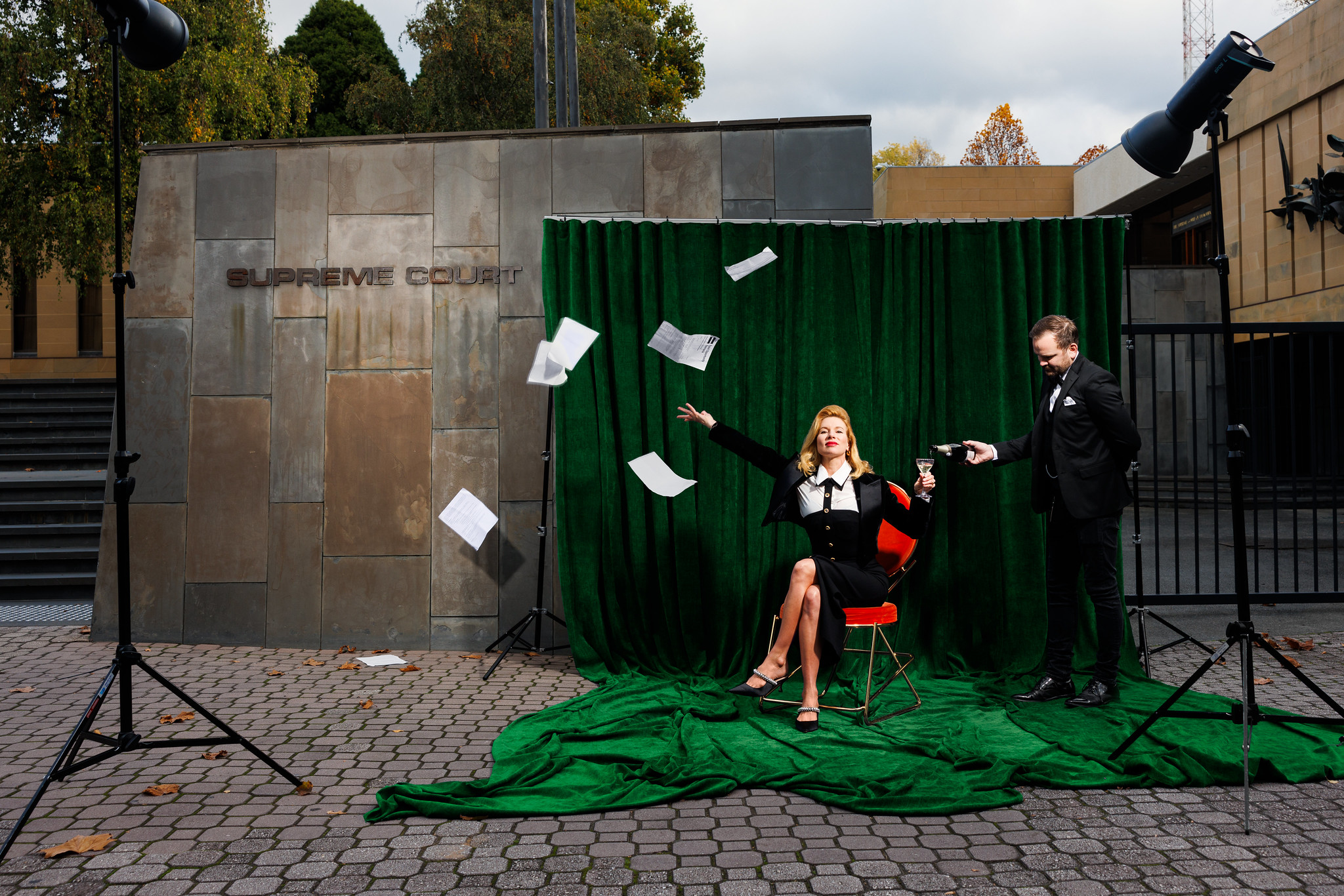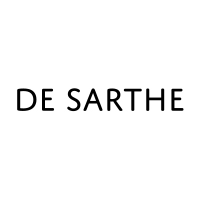Women-Only Exhibition Headed to Tasmania’s Supreme Court
By Xinyi Ye

Kirsha Kaechele posing outside the Tasmania Supreme Court in Hobart. Courtesy Museum of Old and New Art, Hobart.
American artist and curator Kirsha Kaechele, whose female guest-only exhibition “Ladies Lounge” at the Museum of Old and New Art (MONA) in Hobart, Tasmania, was ruled discriminatory by a court in April, has decided to appeal to the state’s supreme court. She also announced she is considering turning the space into either a church or a women-only toilet to circumvent the current order.
Tasmania’s Anti-Discrimination Act exempts discrimination of gender in certain circumstances, including religious institutions, educational settings, and provision of restroom facilities. According to an interview published by MONA, Kaechele’s ideas to comply with permitted exemptions include granting men the right to visit the space only on Sundays for religious services to teach them “the moving meditation of laundry and ironing,” or transforming the space into a large, opulent women’s toilet with champagne-serving male butlers and environmentally sustainable composting technology. Kaechele additionally stated that she believes that men’s experience of such exclusion is already educational enough to warrant an exemption.
Opened in 2020, the lavishly decorated show invites women to enjoy champagne served by male butlers while viewing MONA’s treasures. The project evokes men’s privilege of barring women from exclusive spaces throughout history. In April 2023, a man from New South Wales named Jason Lau filed a complaint to Equal Opportunity Tasmania against MONA after being denied entry to the exhibition. The deputy president of Tasmania’s Civil and Administrative Tribunal, Richard Grueber, heard the case in March 2024, and ruled that the museum lost the case and should allow persons of all gender into the exhibition within 28 days.
While MONA claimed that the Anti-Discrimination Commissioner at the Tasmanian Civil and Administrative Tribunal “did not recognize how the experience of the Ladies Lounge can promote equal opportunity,” the artist was “utterly delighted” to have been taken to court to “exercise the argument.” Nonetheless, she said she was disappointed by the judge who described her performance-protest dance outside the court as “contumelious and contemptuous,” and considered prosecuting her supporters for their sit-in protest at the hearing. Kaechele concluded in the interview: “As the hugely influential gender theorist Judith Butler argues, gender is a performative construct. To which I’d add: so is the legal system.”
Xinyi Ye is an editorial intern at ArtAsiaPacific.








